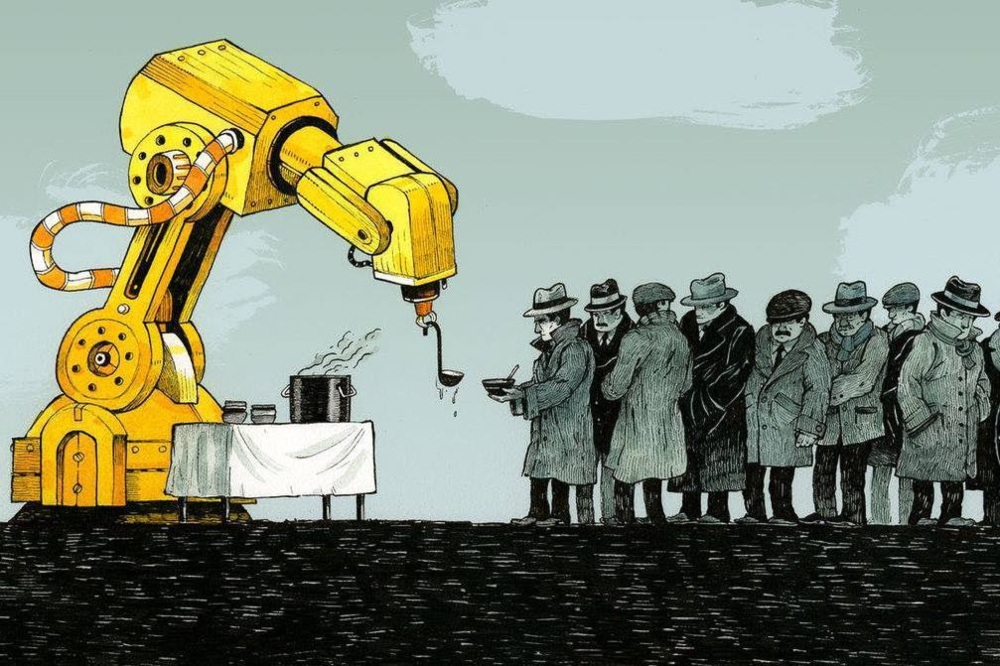A number of companies are trialling the introduction of a four-day working week, with no loss of pay. If ‘successful’, this will simply mean more intense working conditions for the working class, whilst the bosses rake in more profits.
Around 70 UK companies, employing more than 3,300 workers, are trialling the adoption of a four-day working week over a period of six months.
In 2019, a similar trial of a four-day working week saw two-thirds of businesses reporting improvements in staff productivity.
At the same time, more than half said that staff were happier, less stressed, and less absent through illness. Companies also stated that a four-day working arrangement helped attract and retain workers.
At first glance, this sounds like a welcome step, giving workers an extra day of leisure without any loss of pay. Under capitalism, however, there is always a catch. And in this case, what the bosses give with one hand, they take back with the other.
Whilst receiving the same weekly pay, workers in these trials are expected to do as much work in four days as they previously accomplished in five – a so-called ‘100:80:100’ model: 100% of pay, whilst working 80% of the time, but maintaining 100% of the output.
In other words, whilst gaining an extra weekend day, workers will simply be forced to work harder and more intensely in the rest of the week, in order to ensure that the bosses maintain their profits. So much for the claim of ‘happier’, ‘less stressed’ employees!
Utopia or nightmare?
 It is clear that this trial-run, in reality, is little more than a publicity stunt.
It is clear that this trial-run, in reality, is little more than a publicity stunt.
The pandemic forced employers to adopt more flexible working schedules, with millions having to work from home.
Subsequently, in the wake of lockdown, the possibility of continued remote working seems enticing for many, cutting out commuting time and costs. Calls for greater flexibility have therefore grown louder.
This latest (much-publicised) study is therefore an attempt by the capitalists to appear to be taking on board workers’ desires for more flexibility and leisure time, whilst in fact maintaining their status quo of profit-making.
Indeed, if it can be proven that workers can produce the same amount of commodities and output in 80% of the time, then this will simply become the standard intensity of work that all the capitalists will come to expect from their workforce in the usual five-day working week.
Far from providing a socialist utopia, then, this experiment is likely to lead to a capitalist nightmare for the working class.
Accumulation of misery
 Modern technology – including machinery, automation, and AI (artificial intelligence) – provides the basis for a massive reduction in the hours of the working week, all with no loss of pay.
Modern technology – including machinery, automation, and AI (artificial intelligence) – provides the basis for a massive reduction in the hours of the working week, all with no loss of pay.
At the same time, on the basis of a rational, democratic plan of production, including lifelong training and education, any remaining work could be spread across the entire workforce, reducing the working week even further.
So why haven’t the bosses done this? Simply put, because of capitalism: a system of production for profit, not for societal needs.
Under capitalism, technology and wealth is owned privately. The benefits of automation, in turn, accrue to the capitalists (in the form of greater profits), not the workers (in the form of better living standards).
The capitalists, in other words, do not invest in technology and technique in order to reduce the burden of work and lower the hours of the working week for workers, but to undercut their competitors and push other businesses out of the market.
Indeed, whenever technology and automation is introduced by the capitalists, it is generally accompanied by the sacking of workers. Those remaining, meanwhile, are forced to work even more intensely, to produce an ever-increasing mass of profits for the bosses.
This is how we arrive at one of capitalism’s many irrational absurdities: millions are put out of work, whilst those who keep their jobs suffer from longer hours, lower wages, and worse conditions. As Marx stated in Capital:
“Accumulation of wealth at one pole is, therefore, at the same time an accumulation of misery, agony, toil, slavery, ignorance, brutality, and mental degradation, at the opposite pole.”
Class struggle
Wherever workers have made gains, such as the introduction of the eight-hour working day, or higher real wages, these have been achieved on the basis of class struggle.
Even then, with the casualisation of work – through the introduction of zero-hour contracts and the growth of the ‘gig economy’ – the bosses are constantly attempting to take back these hard-won concessions.
According to the TUC, for example, in 2018 the average worker put in 44 hours of work per week, with around three million employees working more than 45 hours per week.
In 2019, meanwhile, UK workers gave their employers £35 billion of free labour in the form of unpaid overtime – with an average of 7.6 hours per worker per week.
This shows the reality of working life under capitalism. Wherever the bosses get the chance, they will try to squeeze more work – and more profits – out of the working class. Only through organised struggle can workers win, and maintain, a lasting improvement in their living standards.
Fight for socialism
 The future under capitalism, therefore, is not one of progress for the working class. Instead of liberating us from work, science and technology under the profit system are used to enslave us.
The future under capitalism, therefore, is not one of progress for the working class. Instead of liberating us from work, science and technology under the profit system are used to enslave us.
To break free of these shackles, we must expropriate the banks and big businesses, and utilise these immense forces of production as part of a rational economic plan.
On this basis, the billions sitting idle in the capitalists’ bank accounts could be invested in further technological advances, rather than being squandered on speculation.
Unemployment and poverty could be eradicated almost overnight, and every worker could be provided with a decent job and a real living wage.
At the same time, by applying modern machinery and automation, and slashing the hours of the working week, the drudgery of labour could be replaced with the opportunity for everyone to thrive, paving the way for a burst of cultural and scientific development across society.
All of this, and more, is possible. But only if we organise as a class to overthrow capitalism and fight for socialism.






